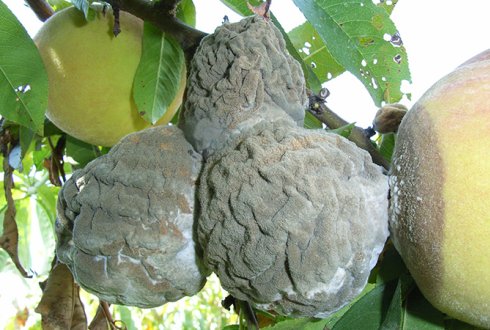Wageningen, The Netherlands
March 5, 2014
By Plant Research International

The goal of the BIOCOMES collaboration project is to develop eleven new biological crop protection products. “These new products will have a central position in Integrated Pest Management for European farmers, horticulturalists and foresters,” says project leader Jürgen Köhl of Wageningen UR (University & Research centre).
BIOCOMES stands for Biological control manufacturers in Europe develop novel biological control products to support the implementation of Integrated Pest Management in agriculture and forestry. It brings together product manufacturers, research institutes and consultancy agencies to work on the registration of crop protection products in a project that is partly financed by the European Union.
“Europe is compelling member states to participate in Integrated Pest Management,” says Köhl. “This means that growers should use prevention and monitoring to reduce the chance of diseases or plagues. The EU also states that growers must first look into biological control methods should crops be affected. Unfortunately, there is still a major shortage of such products.”
Offer and demand
When the demand is substantial and the supply still small, one would expect the market to respond on its own. “The market for biological crop protection is indeed growing by 15% a year,” Köhl continues. “Nevertheless, it is good that the European authorities are stepping in. There are many small and medium-sized producers active in this field, and the development and registration of crop protection products is an expensive and complex issue for them. Collaboration and support from the government can provide an important boost.”
Macrobials and microbials
The eleven products that should be realised in the BIOCOMES project include two so-called macrobials: useful insects that combat harmful organisms. The nine other products involve microbials, which may involve viruses, bacteria or fungi that control pathogens such as fruit rot or insects such as the large pine weevil in forestry.
Competition
Although some of the manufacturers involved already had products at the development stage they do not object to working on the further development within a consortium, Köhl explains. “The benefit for them, for instance in the field of shared expertise with regard to registration, is many times larger than the disadvantage of competitive risks. And the collaboration obviously includes a proper consortium agreement.”
Billions of nematodes
One of the partners in BIOCOMES is German company e-nema, which is currently producing the product Dianem®, among others. “This is based on the nematode Heterorhabditis bacteriophora,” says Ralph Udo Ehlers of e-nema. “It is used in countries such as Germany, Austria and the Netherlands to combat the Western corn rootworm in maize. Dianem serves as an alternative for products such as the neonicotinoids which have been banned in maize cultivation by the EU. However, we currently have difficulty competing with other chemical products on the market. Two billion nematodes per hectare of maize is required for sufficient protection.”
Within the remit of BIOCOMES, e-nema and its partners are aiming to improve technology involving the nematodes to such an extent that they can be produced more efficiently. “Only then will the costs of this type of biological pest control be sufficiently competitive to the chemical alternatives,” Ehlers concludes.
Surprises
Jürgen Köhl points out that not all eleven products will be commercially available at the end of the four-year period reserved for BIOCOMES. “Often a registration procedure is required, but we expect to have taken the most crucial steps by the end of the four years. At the same time it is hard to predict how things will go with biological crop protection. By definition, this type of applied biology is much more complex than a ‘simple’ crop protection product based on the effect of a single chemical. It is clear nevertheless that the development has a future. It is not only required by the European Union: the retail sector and consumers also demand products with a minimum of chemical residues.”